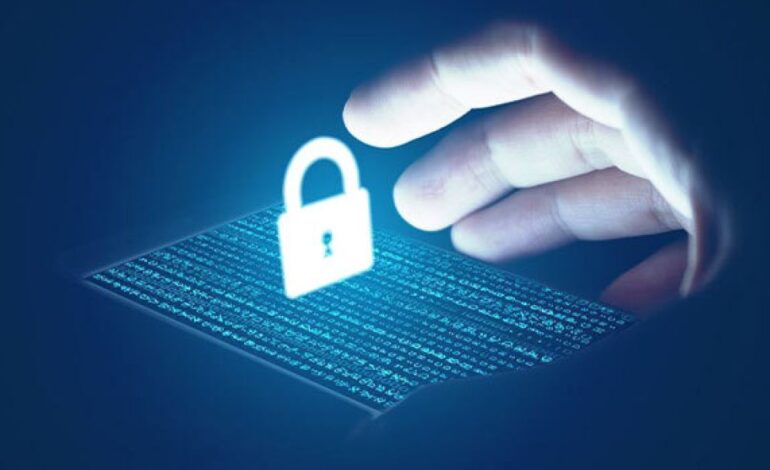Ways to Guard Your Digital Assets and Prevent Fraud

Digital assets are becoming increasingly prevalent these days, as an impressive number of people have taken the online route.
Everything from project files and customer databases to imagery, proprietary processes and cryptocurrency is considered a digital asset. The diversity of this type of asset has grown considerably, and so has the need to protect them adequately.
Unbelievably or not, malicious actors exploit apps to steal digital goods, and technology rarely can keep pace with their efforts, regardless of the level of its evolution. So, there’s a need for a strategy, whether you’re looking to protect your most recent crypto investment or virtual content.
In the case of the former, ensure you dispose of the right tools and are mindful of your online habits. If you buy Ethereum, for example, you’ll inevitably check the Ethereum price on a given exchange to ensure you don’t spend more than you can afford. But what’s next?
You can obviously not let your treasured assets on that exchange – or can, but with the risk of getting stolen. Thus, consider investing in an adequate storage method, preferably a cold wallet, as this type of wallet isn’t connected to the Internet and hence keeps your crypto safe from cyber hacks, unauthorized access, or other system vulnerabilities.
This is only one way to protect your cyber livelihood. For more, read on!

List all your digital assets
This may seem pointless at first, but having a full picture of your digital asset inventory is more helpful than you think. Understanding your digital goods is the key to protecting them, whether we talk about customer databases and lists, social media, corporate web pages, imagery, or intellectual property.
Each digital asset must be listed and stored adequately, preferably in the cloud. Once you have a clearer idea of your goods and investments, you’ll be able to safeguard them like an expert.
Digital asset management
If you run a company and are especially mindful of all the related data’s safety, it may help to consider digital asset management software. Surely, folder services or network drives are an option, too, but not only do they not protect your assets fully, but they also come with significant limitations.
On the other hand, professional tools can keep assets in a single place and enhance your cloud metrics for maximum online safety. Such software is often armed with a content distribution network (CDN). This security feature makes it possible for your assets to be stored in decentralized buckets in various locations. Therefore, only authorized users have access to them.
Make use of strong passcodes
Building a strong password is one of the best ways to secure and limit access to your digital assets. Thus, it’s time to give up on passcodes of likes “name1234” or “date of birth”. These will be hackers’ first tries, so be one step ahead of malicious actors and protect your accounts and assets appropriately by having solid passwords in place.
Ideally, your passcode should consist of a random combination of numbers, letters (both capital and lowercase), and special characters. As a general rule, the longer the passcode, the more challenging to guess. And remember, it’s recommended to create a different password for each account or application to avoid a total catastrophe if one of these gets compromised.
If you find it hard to remember all of your unique and complicated passcodes, you can install a password manager to take care of this aspect for you. However, when choosing your password manager, be sure you look for two-factor authentication and encrypted storage features for maximum safety.
Use protective agreements
Companies are advised to secure digital assets by constantly being mindful of their protective agreements. These include everything from team member and employee agreements to consultants signing non-disclosure agreements (NDAs) and freelancer agreements.
These compliances indicate to people that digital assets need a cautious approach and have to be handled carefully. If you’re a business owner, consider also asking team members and partners to commit to privacy, apart from using suitable agreements in this regard.
Two-factor authentication (2FA)
2FA is often used as an additional layer of protection for both individuals and organizations against hackers. The sad truth is that no matter how strong and complex your passwords are, there’s still that 1% chance of getting your account compromised and your assets stolen.
That’s the technology, after all. But this technology can be by your side if you choose it wisely. Therefore, after creating an impenetrable passcode, ensure you opt for the 2FA mode to get notified whenever another entity tries to access your account information.
It’s quite simple to understand the mechanism: the password is the first line of defense, but when it gets cracked, it’s 2FA’s turn to prove its merit. This is, in fact, something unique that you possess, be it your smartphone or fingerprint.
Data backup
Data backup involves the action of copying data and files to another location to secure them in the event of a cyberattack. You can call it plan B of an emergency, but one thing is for sure – it’s critical for your assets to be restored in the event of the unthinkable.
Performing a data backup is essential for companies to keep themselves safe from fraud, data corruption, hardware malfunctions, user errors, malicious hacking, and natural disasters. Thus, any time your valuable information is deleted or destroyed, you can recover it from the backup storage.
Backups are quite versatile, so regardless of how diverse your needs are, you’re likely to find something suitable. Therefore, would you consider a remote location (in the cloud or a physical location) to store your backup or are you going to store it locally on a hard disk drive?
Be wary of fraud
Online frauds are more common than you think, so you must be vigilant of any vulnerability or threat. If you’re an individual looking to protect their digital goods, never share your passwords or personal information and make use of advanced security tools.
If you’re a business leader, conducting thorough training on digital asset management and security is the advisable way to start this journey.










